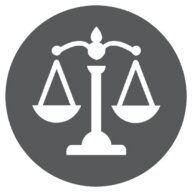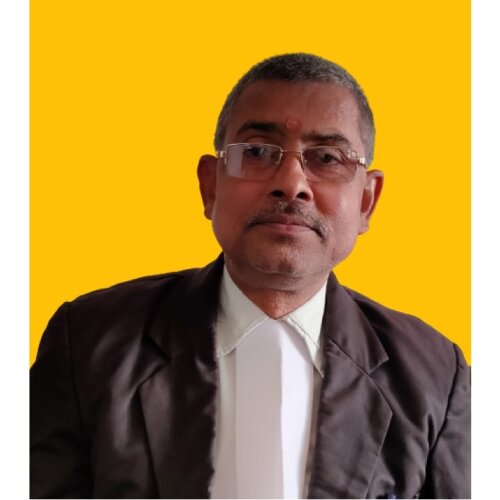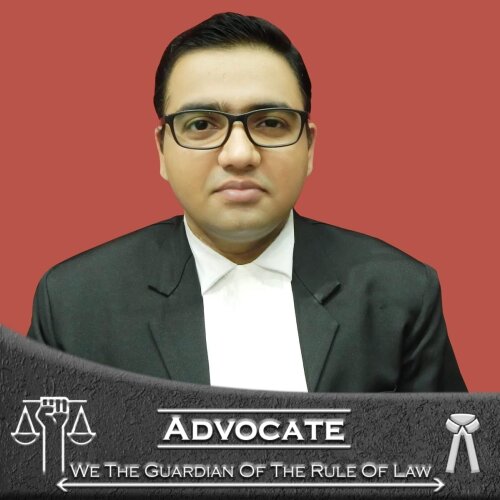Best Child Abuse Lawyers in Patna
Share your needs with us, get contacted by law firms.
Free. Takes 2 min.
Free Guide to Hiring a Family Lawyer
List of the best lawyers in Patna, India
About Child Abuse Law in Patna, India
In Patna, India, child abuse is governed by both national and state laws. At the national level, the 'Protection of Children from Sexual Offences Act, 2012 (POCSO)' is the main legal legislation that deals with cases of child abuse. The POCSO Act provides protection to children from sexual abuse, sexual harassment, and pornography, and stipulates severe punishment for perpetrators.
In addition, the Juvenile Justice (Care and Protection of Children) Act, 2015 also addresses issues related to child abuse and neglect, with a focus on the welfare of children. Within Patna, local laws additionally support these overarching laws, focusing on providing support to victims and holding perpetrators accountable.
Why You May Need a Lawyer
Child abuse is a serious crime with severe consequences. If you suspect a child is being abused, legal intervention may be necessary. A lawyer can advise you on the legal rights of the child, the process of filing a complaint, and can guide you through the complex legal process that follows. A lawyer could also help in instances where the child's rights need to be protected against wrong allegations or false cases.
Local Laws Overview
The major laws regarding child abuse in Patna fall under Indian Penal Code and POCSO act. The Indian Penal Code contains provisions such as Section 375 (Rape), Section 354 (Assault or criminal force to woman with intent outraging her modesty), and others that deal with offenses amounting to abuse.
The Protection of Children from Sexual Offences Act, 2012 (POCSO) specifically protects children from sexual assault, harassment and pornography, and provides child-friendly mechanisms for trial, without re-victimising the child during the legal process.
Furthermore, the Juvenile Justice (Care and Protection of Children) Act, 2015 provides for the proper care, protection and treatment by catering to their development needs, and aims to handle children in the juvenile justice system through community-based services.
Frequently Asked Questions
What constitutes child abuse under Indian law?
Child abuse includes physical, sexual or emotional ill-treatment of a child. This can be an act of commission, such as direct harm or mistreatment, or omission, as in neglect or failure to provide for a child's basic needs.
Who can report cases of child abuse?
Any person who suspects that an act of child abuse has taken place can report the case. This includes family members, neighbors, teachers, doctors, or any individual who has concerns for the welfare of the child.
What happens after a case of child abuse is reported?
After receiving a report of child abuse, the authorities are obligated to investigate. This includes interviewing the child, parents or other individuals who may have information about the abuse.
What are the punishments for child abuse?
Punishments for child abuse can range from imprisonment to fines, or both, depending upon the nature and gravity of the offence.
Can a lawyer be present during the questioning of a child?
Yes, a lawyer can be present during the questioning of a child to ensure the child's rights are being defended and proper procedures are being followed.
Are proceedings in cases of child abuse open to the public?
No, in order to protect the child from further harm and harassment, proceedings typically take place in a closed court.
What are the rights of a child under the POCSO Act?
Under the POCSO Act, the child has the right to protection from being re-victimised, right to privacy, right to immediate legal aid and right to be heard at every stage during trial.
What is mandatory reporting in child abuse cases?
Mandatory reporting refers to the legal requirement to report suspected cases of child abuse. Failure to report known cases can lead to penalties.
Who can be a mandatory reporter?
Mandatory reporters can include a range of professionals working with children, including teachers, doctors, nurses, police officers, and social workers.
How do I secure legal representation?
You can contact local legal aid services, bar associations, child rights organisation or a private attorney for representation.
Additional Resources
The Child Welfare Committee (CWC), the National Commission for Protection of Child Rights (NCPCR) and the Bihar State Commission for Protection of Child Rights (BSCPCR) are government entities that can provide help and resources. NGOs like Kailash Satyarthi Children's Foundation and Save the Children also provide support in cases of child abuse.
Next Steps
If you need legal assistance in cases of child abuse, consider contacting a local attorney who specializes in child protection law. Maintaining confidentiality and ensuring the safety of the child is paramount. Reporting the case to local law enforcement, child protective services or a Child Welfare Committee should be your immediate step. Be prepared to provide as much information as possible, while ensuring the child is not subjected to more harm or stress during the process.
Lawzana helps you find the best lawyers and law firms in Patna through a curated and pre-screened list of qualified legal professionals. Our platform offers rankings and detailed profiles of attorneys and law firms, allowing you to compare based on practice areas, including Child Abuse, experience, and client feedback.
Each profile includes a description of the firm's areas of practice, client reviews, team members and partners, year of establishment, spoken languages, office locations, contact information, social media presence, and any published articles or resources. Most firms on our platform speak English and are experienced in both local and international legal matters.
Get a quote from top-rated law firms in Patna, India — quickly, securely, and without unnecessary hassle.
Disclaimer:
The information provided on this page is for general informational purposes only and does not constitute legal advice. While we strive to ensure the accuracy and relevance of the content, legal information may change over time, and interpretations of the law can vary. You should always consult with a qualified legal professional for advice specific to your situation.
We disclaim all liability for actions taken or not taken based on the content of this page. If you believe any information is incorrect or outdated, please contact us, and we will review and update it where appropriate.
















